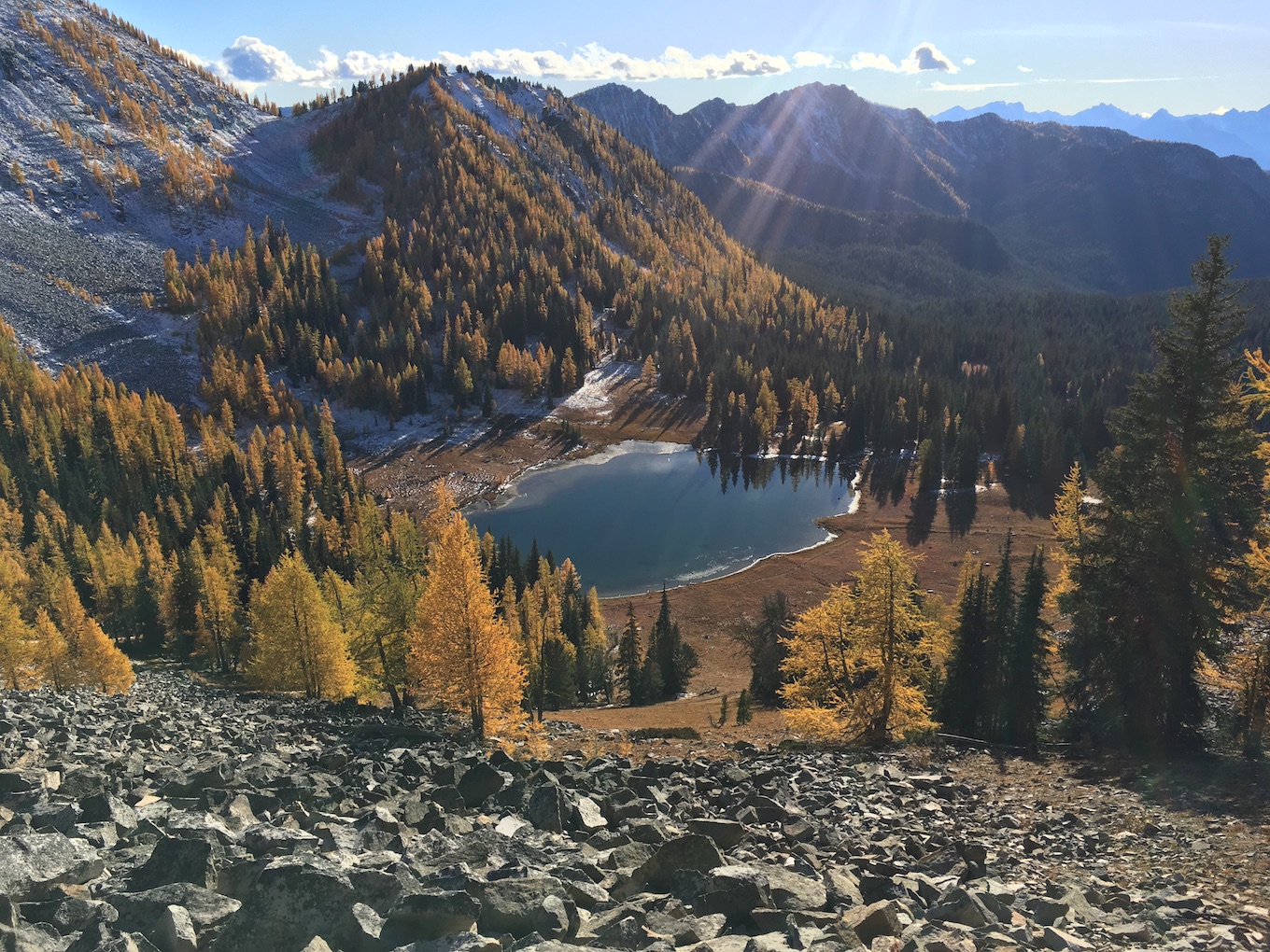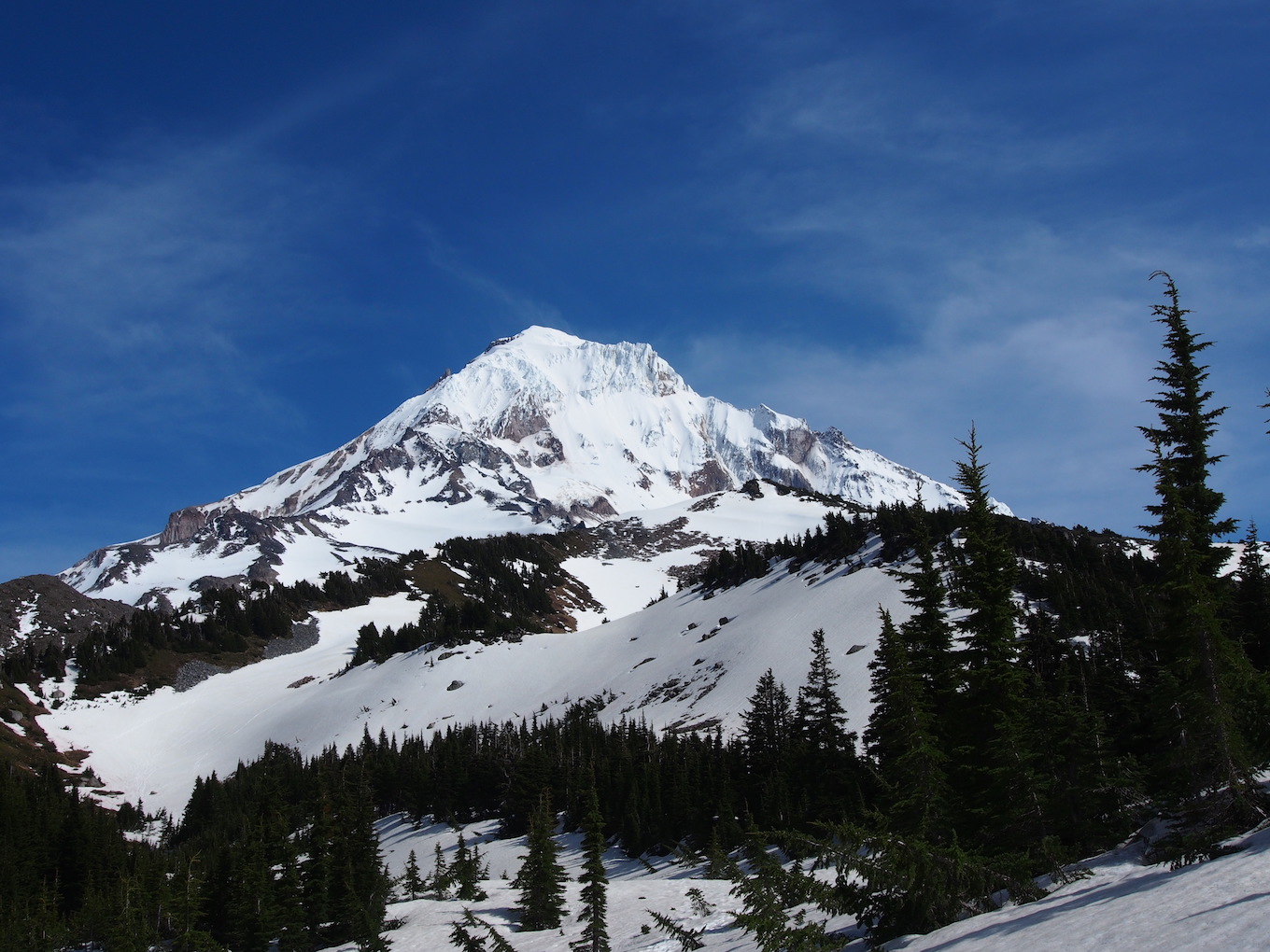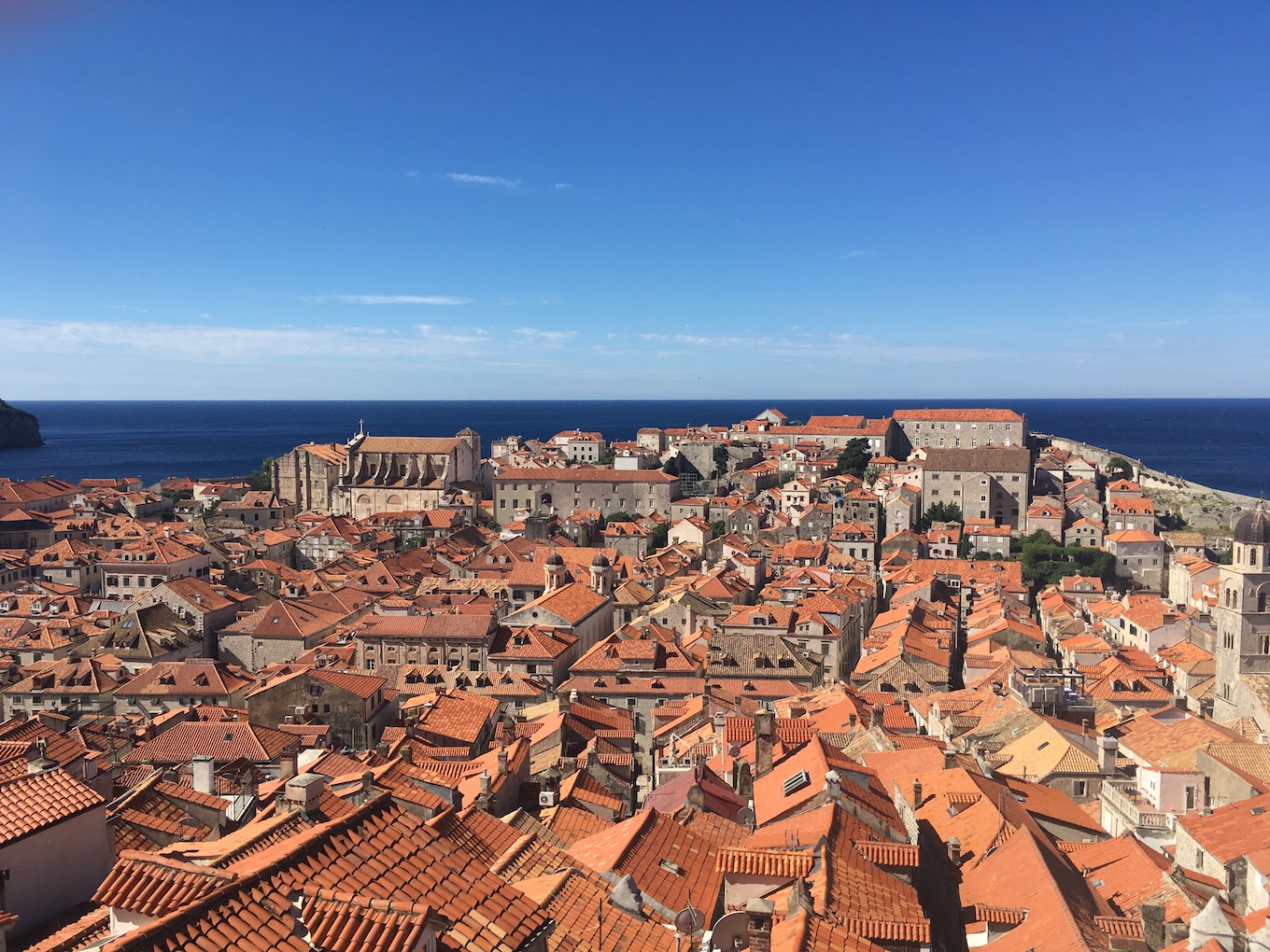Hard Reset
Two nights ago, I slept in my own bed for the first time in almost three weeks.
My boyfriend and I had just returned from a two-and-a-half-week-long voyage through Amsterdam, Dubrovnik, and London. We’d seen Sunflowers and the Rosetta Stone; we’d kayaked and jetskied; we’d eaten slabs of tongue-burning cheese pastry and spooky but delectable foamed asparagus.
But more valuable than these experiences, than fun, than knowledge, is simply having my head screwed on straight again.
I moved to Portland in the fall of 2014 after finding that, as much as I wished otherwise, I was fundamentally incompatible with New York City. When people (usually my Detroit-based relatives; usually at Passover) ask me what I like about living here, I find myself invoking the usual Portland clichés: it’s highly bikeable; the food is top-notch; it’s close to nature.
This last point has done me incalculable good over the three and a half years that I’ve dwelled here. Too much good to dissect quickly with family over a noisy dinner; too much for even me to understand without careful consideration.
So here we go.
I’d basically never hiked before moving out here. Growing up in Buffalo, NY, I’d been on a handful of creek walks; I knew how to canoe, start a fire, identify nascent hypothermia. But not seeing another person for hours, for a day; anticipating and responding to hunger, thirst, cold, tiredness; drawing together two points on a map using only my own body, using my tiny self to carve new spaces out of the soil, out of air? Not a chance. The monotony, wonder, calculus, poetics of hiking were new to me, alien experiences adjacent to my everyday life. Stone, trees, mulch are there even now, separated by a spun-sugar membrane from my home and bed where I write this.
North Cascades, Washington State, Fall 2017. I camped by this lake.
When you are hiking, you are thinking about nothing else. Even if you’re talking about work, about friends, about books with your hiking companions, there is always part of your mind that’s focused not on that conversation but on sensation, on your surroundings. Part of you is aware only of smells, of temperature, of your own breathing. And when silence falls, when the conversation dies, that part of your mind expands to fit the space available.
For infinite moments I have been a valley, been distance, granite, innumerable trees.
This time spent outside of myself is stranger, more elusive, than as to be easily described. I sleep well that night; I go to work the next week and spend a few minutes confused: what am I doing here; what was I working on on Friday?
But once the confusion clears, I feel amazing. The top sheet of paper has been torn from a notepad, revealing a completely blank page underneath. I have never been tired; I have never been hurt. How do I feel this okay?
As I realized that this was a pattern, a name presented itself: a hard reset.
A hard reset is when you bypass normal, software-based ways of shutting down or restarting something, usually a computer. Instead of telling the machine to shut itself down via a dropdown option, waiting for programs to close, and telling it what to do with unsaved documents and so on, you simply hold down the Power button until the screen goes dark. When your computer boots up again it has little or no idea what it was just doing. It might have a recovery state saved that you could invoke to reopen some programs, but by and large the machine is in a fresh, who am I and what year is it state.
This is how I am the day or two after coming back from a long hike. Being forced to (or getting to) think about hiking and only hiking for an entire day shifts my mind into a different track. I slow down, or at least my thoughts cluster differently. I don’t, I can’t think about a meeting or an architecture decision, because I’m noticing how the ground feels, listening for the first whispers of thirst, noticing acutely and dimly the ferns that litter my path.
Mt. Hood from Cairn Basin, Summer 2016.
This hard reset has become supremely important for me; this is the first time I’ve been able to identify that I need it and been able to get it. For me, the cart came before the horse in that I got it and only later realized how okay it made me feel.
(In my experience, hard resets make me feel wonderful, happy, good, etc. but above all okay in the positive sense — buoyant, stable, and whole. As I mention above: untired; unhurt.)
When I lived in New York City, life maintained a death grip on me. No matter what I did, I was me doing nothing but living my life, my step-by-step life in a body in a place. And it added up.
I didn’t move to Portland for the hard reset or for work-life balance. I didn’t know about hard resets, and balance is a nut I have yet to crack (but I’m trying). I moved here for a job, because I always move for jobs. I took the job that paid the most, the single job I applied for outside of the NYC area, the escape hatch I traced for myself out of what I slightly already understood was an untenable life.
This summer, I needed something deeper than a hard reset. I love work and I still love my job, but the downside of this is that it has a way of creeping into hours and cycles that I should be spending doing anything but working. I may not be in the office but as I play games, read, garden, some part of my brain is mulling over how to order upcoming features, onboard a new team member, handle a change to the stack.
To be clear, I let this happen. Compartmentalization is a skill, one that I learned from my violin teacher. As he reworked my bow hold and gave me intervals to practice, he also helped train me to leave thoughts at the door, to make room for only what I needed in the moment.
(He also noticed that, when playing, my breath sometimes became irregular: I was forgetting to breathe.)
I let those skills slide, let my hard resets slide in the name of career advancement and out of genuine pleasure at the challenges I had been handed. It was fun until it wasn’t. Until I was coming in on Mondays still-tired and still-hurt and trying everything to make it not show. I would come home late, ground down, unable to stop thinking about that day and about the one coming up.
It wasn’t burnout, or maybe it was? Does it count as burnout if you never cry at work? If you never yell at anyone, if you never look for another job?
I put an out-of-office responder on my email and could finally exhale. We were halfway through a Van Gough exhibit in Amsterdam. We paused between floors and I hit some buttons to give myself the space that an ocean hadn’t been able to supply.
I thought I would be better by the time we got to Croatia. I had allocated a few days to feel tired, to feel okay-but-down in that way you need to allow yourself to feel sometimes, because that’s the only way to not make it worse.
I was not better in Croatia. Thinking about work made my chest tighten. My boyfriend pecked merrily away at a side project; opening a text editor made me want to puke. I read a book, gazed at the sea, played games, was not myself for a bit. Some days I felt solidly better than before; one day I woke up and was sad from that moment until I went to sleep that night. I still don’t know why.
Dubrovnik from the old city wall, Summer 2018. Getting better.
I was better on my third day in London. I woke up early and walked around alone. Dipped in and out of shops; felt the undulations of building patterns across streets, neighborhoods. Bought a pen and was happy. I felt autonomous; I felt myself wanting things.
That afternoon, I wrote some code. Because I wanted to. I slept well.
Here I am, home again, working on finding and maintaining this peace. What do I need to be happy? How do I stay buoyant?
I thought I was low-maintenance but I guess not, or maybe this is low-maintenance, or maybe the metric of “what do you need to do in your free time to be happy at work” is backwards and inside-out. (Kidding; I know it is.)
This is my journey to consistent wellness; I assume it will take forever, but maybe it will get easier someday.
In the meantime, here I will be, giving myself (making for myself) the space and the circumstances to be well.